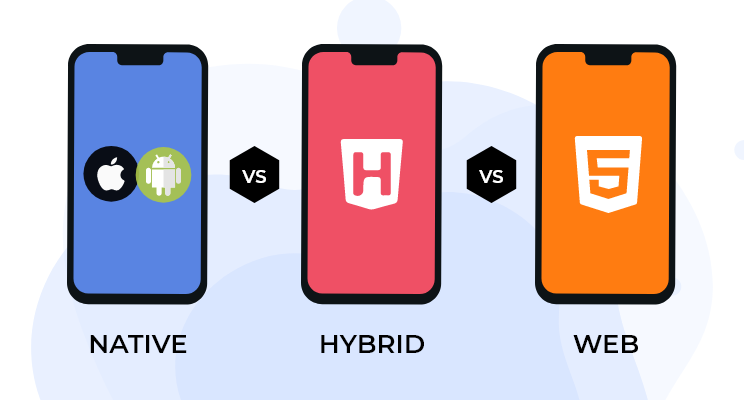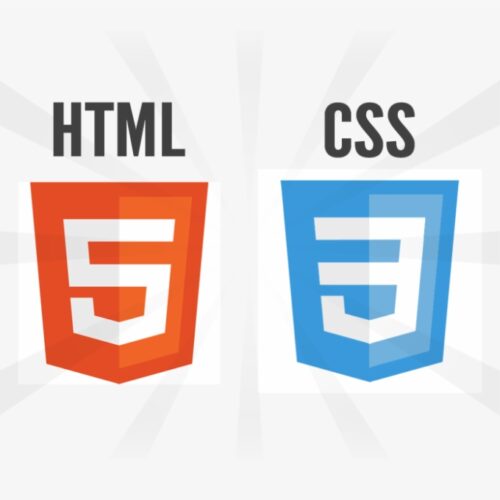Why Sidekick Believes in Native Mobile App Development

People have been creating and using mobile apps for as long as there have been mobile phones. But it wasn’t until the iPhone was released in 2007 that Mobile App Development took off, especially because of the popularity of the iPhone, its marketplace, and its large tactile screen. Mobile app development is the process of designing and building mobile apps. There are two main types of mobile apps in 2023: native apps and hybrid apps. Native apps are built specifically for one platform, such as iOS or Android. Hybrid apps are built using a single source of code and can be run on multiple platforms.
There has been much buzz surrounding hybrid apps, including many companies and agencies moving to hybrid technologies only. At Sidekick Interactive, we decided to focus on native apps, and in this article, we’ll explain why and for which types of projects we think this decision makes the most sense.
The Different Types of Mobile App Languages and Architecture
Native App Development
Native mobile apps are those that are written using the native language of the mobile platform they are running on – Swift for iOS and Kotlin for Android. Because they are written in a platform-specific language, they can take advantage of all of the features of that platform, making for a more seamless user experience. They can also make use of device-specific hardware features, such as the camera, GPS, and accelerometer in more complex usage.
Hybrid App Development
Hybrid apps are those that are written using web technologies, such as HTML, CSS, and JavaScript, or newer hybrid languages like Flutter. For example, React Native is a platform that enables developers to create mobile apps using JavaScript. It uses React, a popular JavaScript library created by Facebook, to create user interfaces. Because React Native apps are written in JavaScript, they can share code between iOS and Android apps, making development simpler and faster. However, React Native apps are not as fast or as smooth as native apps, and they may not be able to use all of the features of a device’s hardware.
While hybrid apps do offer some advantages – such as being able to share code between platforms and lowering certain costs to entry – they generally lag behind native apps in terms of performance and features.
Mobile games are a different category altogether, and usually, the performance of mobile games tends to be better on Hybrid App Development frameworks like Unity.
Web App Development
Web apps are those that are accessed through a web browser, rather than a dedicated app store. They are typically written in HTML, CSS, and JavaScript, making them cross-browser and easier to develop. However, they often have less functionality than native or hybrid apps, and they can be slower and less smooth to use. They also cannot be used to publish an app to the AppStore or Google Play.
Why Do We Prefer Native Mobile Apps
We think the many advantages of natives far outweigh the only negative – the higher development investment upfront to have 2 distinct platforms. Native apps are faster, smoother, and more functionally rich than hybrid or web apps, making them a better choice for most mobile applications. And in the long run, the investments end up being very similar when including support and maintenance. Most popular apps on your phone are native apps, let’s look at some of the advantages:
Performance
Native apps are faster and smoother than hybrid or web apps, making them a better choice for most mobile applications. One reason for this is that they are written in a platform-specific language, which allows them to take advantage of all of the features of that platform. They can also use device-specific hardware features, such as the camera, GPS, and accelerometer in more complex usage.
Durability
The fact that native apps are written in a platform-specific language also contributes to their stability and to fewer bugs. This is because the code is more closely aligned with the platform’s language, which means there are fewer chances for incompatibilities between the code and the platform.
Hybrid and web apps, on the other hand, are written in cross-platform languages like HTML, CSS, JavaScript and ReactNative. This can lead to compatibility issues between different devices and platforms, as well as between the app’s codebase and the platform SDKs. These issues can cause bugs in the app, which can be frustrating for users.
Native apps are also more easily updated when new versions of the platform are released. This is because the developer only has to update the app for one platform, rather than two (or more). Hybrid and web apps, on the other hand, may not get updated as often because it can be more time-consuming to update them for all of the different platforms they support, plus it requires the hybrid app framework to support the new platform updates.
Maintenance
Just like with any other software, bugs and glitches can occur in native apps. However, these can be more easily fixed when they’re found because the developer only has to update the app for one platform, rather than two (or more). Testing will also be more efficient, as regression tests, for example, only need to be run on the platform that is being updated.
Hybrid apps, on the other hand, may not get updated as often because it can be more time-consuming to update them for all of the different platforms they support. This can lead to compatibility issues between different devices and platforms, as well as between the app’s codebase and the platform SDKs. These issues can cause bugs in the app, which can be frustrating for users.
Building out your team
The fact that there are more native app developers than hybrid app developers in the world makes it easier to recruit and change providers. This is because more people know how to develop native apps than hybrid apps. So if you’re looking for a developer to integrate your team, you’ll have a larger pool of candidates to choose from if you are building a native app.
And if you’re not happy with your current provider, it’s also easier to switch to another provider that specializes in developing native apps. This is because there are more of them out there, and they generally have a higher reputation for delivering quality work.
Community
There is a larger, more involved native app developer community which means there is more shared knowledge. This means that if you’re having difficulty with a particular aspect of developing a native app, there’s a good chance that someone else has faced the same challenge and has shared their solution.
This also makes it easier to find help when you need it. You can either search for solutions online or ask other developers in online forums or in person.
Complexity
When it comes to complex functions such as augmented reality (AR) and 3D scanning, native apps are hands down the best option.
AR requires intensive processing power and accurate motion tracking, which can be achieved with much better results with a native app. 3D scanning is also much better suited for native apps.
One Platform Only
Many app projects that we see are on one platform only. For example, a company that has a fleet of iPads that wants a mobile app for them. In that case, native apps win on all fronts, even on costs, as it’s easier and faster to develop directly natively for one platform.
The Use Cases When Hybrid Mobile App is Superior
There are a few use cases where we would recommend Hybrid apps, and those are mostly when the app is very simple, or if you need the same app on many different outputs (think Web + iOS + Android + TVOS). In that case, the potential for savings by using one code-base might be larger than programming 4 different apps.
Another use case that merits looking into hybrid apps is when you already have hybrid app developers on your team.
The Use Cases When Web App is Superior
We’re including web apps in the conversation because not all apps need to be mobile apps, in the sense that they need to be downloaded on the AppStore and live on your phone. Many smaller app projects can work fine as a web-app, that is accessible via a browser. Especially one-time-use apps are a great use-case because getting someone to download and install an app only for a single use is going to be a marketing challenge.
The Use Cases When Native Mobile App is Superior
As you have seen in this article, we feel like most other cases make native apps the superior choice, but often we are in a grey zone where an argument can be made for a hybrid app or a native app. A few use cases that clearly should push the needle in favor of native development would be:
- An app with technical complexity
- An app with UI complexity
- An app that is only required for one platform
- An app that interfaces with connected devices
Now that you know the benefits of native app development, it’s time to start planning your next project! Contact Sidekick Interactive today to get started – we’re experts in this field and can help you create a stunning app that meets all your needs.





